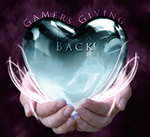CAMH Launches Self-Help Web Site and Mobile App for Problem Gambling
![]() The Problem Gambling Institute of Ontario (PGIO) at the Centre for Addiction and Mental Health (CAMH) today launched a new and unique option in the continuum of care for individuals and families affected by problem gambling: online self-help tools. Anonymous, free, and accessible any time of day from a computer with an internet connection, these new tools can help the approximately 333,000 Ontario adults and approximately 29,000 students who are affected by problem gambling, but who usually do not seek help.
The Problem Gambling Institute of Ontario (PGIO) at the Centre for Addiction and Mental Health (CAMH) today launched a new and unique option in the continuum of care for individuals and families affected by problem gambling: online self-help tools. Anonymous, free, and accessible any time of day from a computer with an internet connection, these new tools can help the approximately 333,000 Ontario adults and approximately 29,000 students who are affected by problem gambling, but who usually do not seek help.
With the Ontario Lottery and Gaming planning to offer online gambling in 2012/13 and the recent announcement about the significant expansion of gambling availability across Ontario, PGIO’s new Self-Help Gambling Tools, available at ProblemGambling.ca, are especially timely and relevant.
There are many barriers to getting help with a gambling problem, including shame, time constraints, lack of transportation, and having difficulty coming to terms with the existence of a gambling problem. The Self-Help Gambling Tools address these barriers as they are completely self-directed and convenient to use. For individuals with iPhones, there is even a free application available in the app store that allows you to monitor your gambling behaviour and track your urges to gamble (Other mobile versions coming soon). People who keep track of their gambling behaviour are more successful when trying to quit or reduce gambling.
In addition, family members and friends can navigate difficult challenges faced by a loved one’s gambling with online tools that have been developed specifically for them. Other features of the site include:
- Gambling Quiz: Answering these nine questions will help you understand if gambling is having a negative impact on your life.
- Self-Help for Those who Gamble: Do you gamble? These interactive tools will help you explore, cut down or stop gambling.
- Self-Help for Family and Friends: Does someone you care about gamble too much? With these interactive exercises, learn why they gamble and what you can do to help.
- Monitor Your Gambling & Urges (MYGU): Use this web tool to keep track of when you gamble, or feel the urge to gamble. Mobile App versions for most hand-held devices will also be available in the near future.
“Using self-help tools and the web was a good fit for me when I needed help with my gambling problem,” says *Ivan (*not his real name). “It’s help anytime, anywhere, because sometimes you’re down in the dumps at 4 am.”
Ivan’s story is not an uncommon one among people struggling with a gambling problem. He started gambling at the age of 19 and formally ‘banned’ himself (self-excluded) from casinos three times. He turned to online gambling and, by the time he was 27, Ivan had lost over $100,000. The bills were piling up, he was missing work, his drinking got worse and his wife was ready to leave him.
“I decided to get help. I tried counseling and self-help books and I turned to the web whenever I needed help,” he says. Ivan is active in online peer support communities where he was recruited to help review CAMH’s new online self-help gambling tools. Ivan says the tools “will help a lot of people who are too ashamed to seek help, but really need it.”
“If you’re trying to resist gambling urges, you might find doing these activities a great way to avoid the temptation to gamble,” says Robert Murray, Manager of the Problem Gambling Project at the PGIO. “Therapists and other helping professionals can also use these tools to complement their counseling sessions by encouraging their clients to access them from home between visits.”
The Problem Gambling Institute of Ontario at the Centre for Addiction and Mental Health brings treatment professionals and leading researchers together with experts in communicating and sharing knowledge. Our focus is on collaboratively developing, modeling and sharing evidence-based solutions to gambling related problems, within Ontario and around the world.
The Centre for Addiction and Mental Health (CAMH) is Canada’s largest mental health and addiction teaching hospital, as well as one of the world’s leading research centres in the area of addiction and mental health. CAMH combines clinical care, research, education, policy development and health promotion to help transform the lives of people affected by mental health and addiction issues.
CAMH is fully affiliated with the University of Toronto, and is a Pan American Health Organization/World Health Organization Collaborating Centre.



